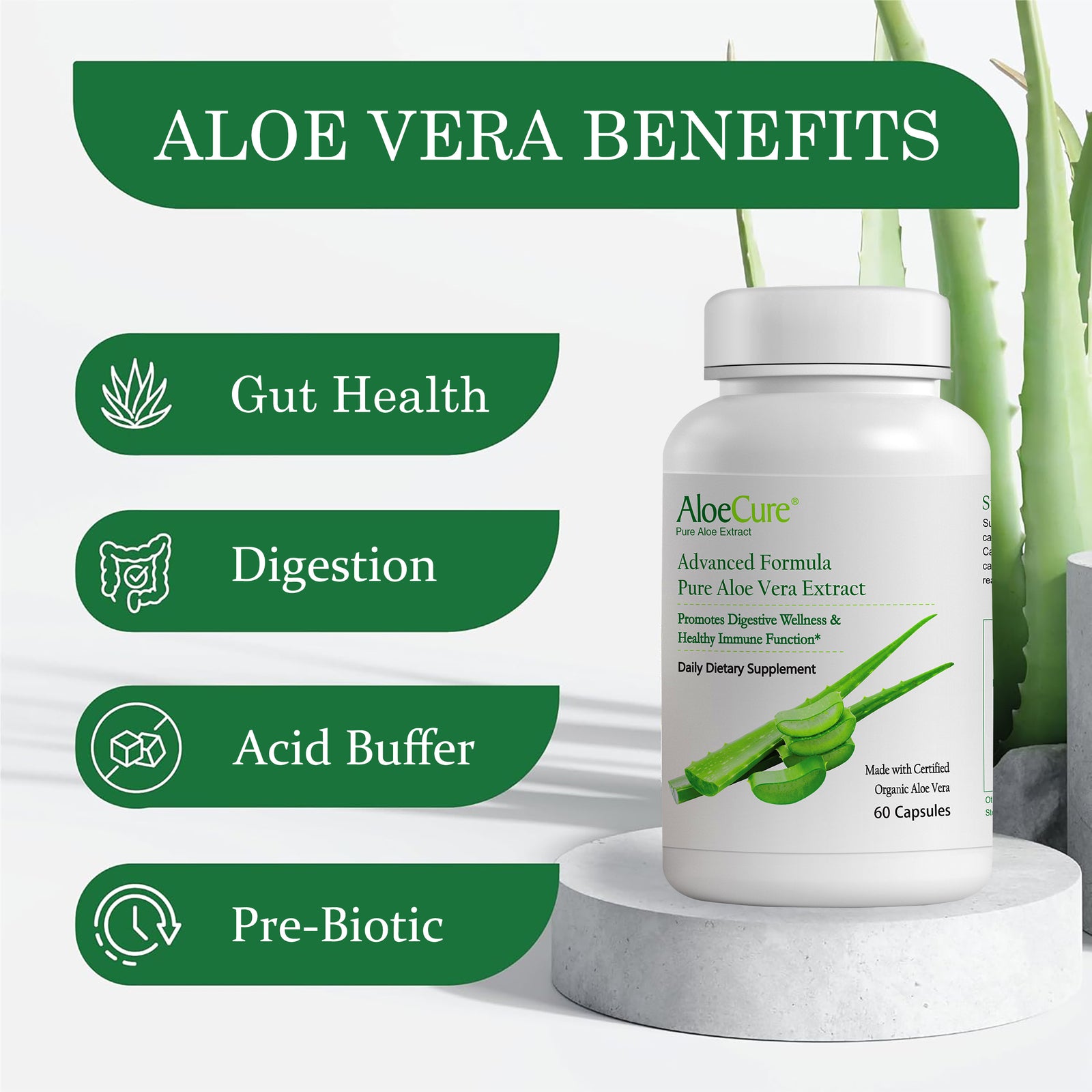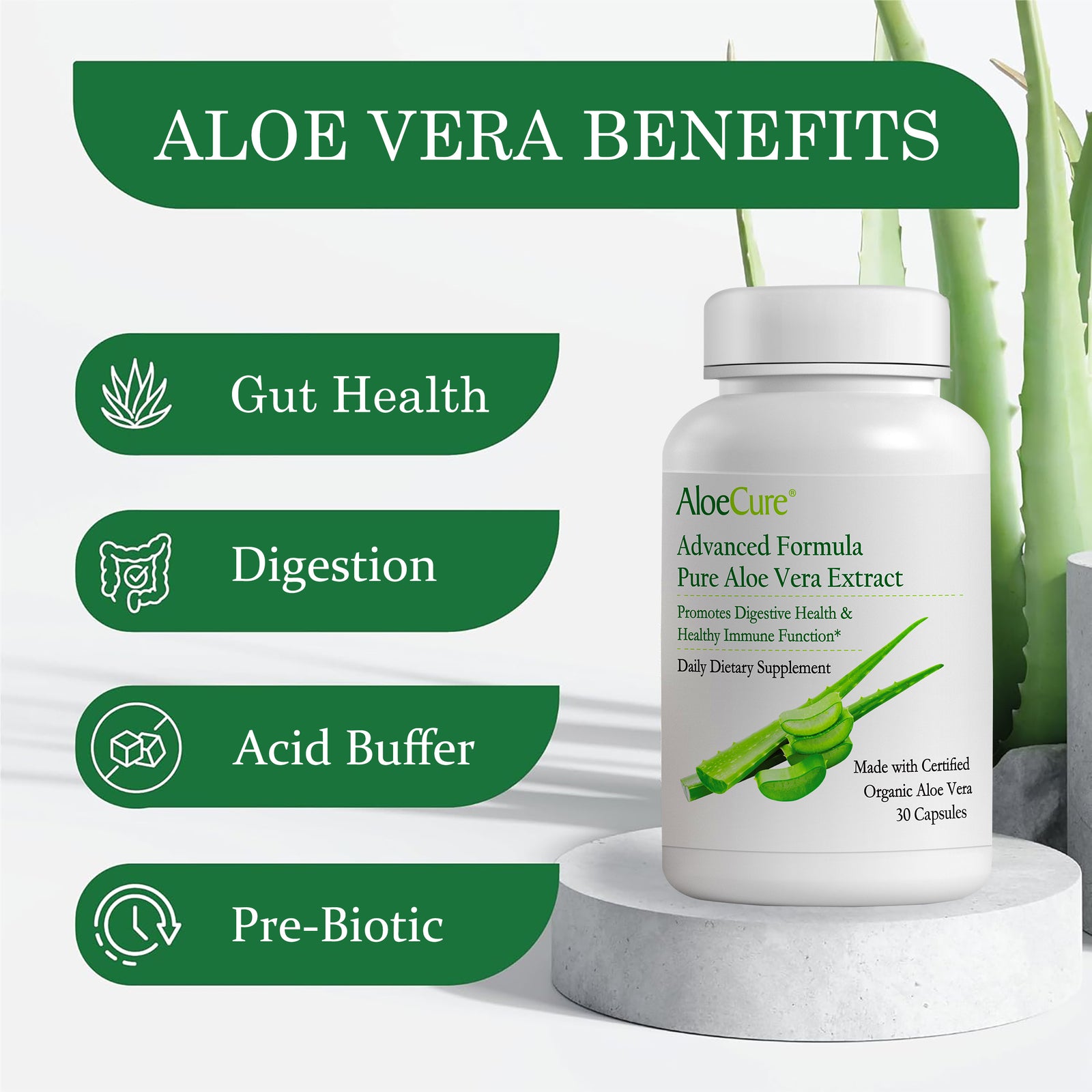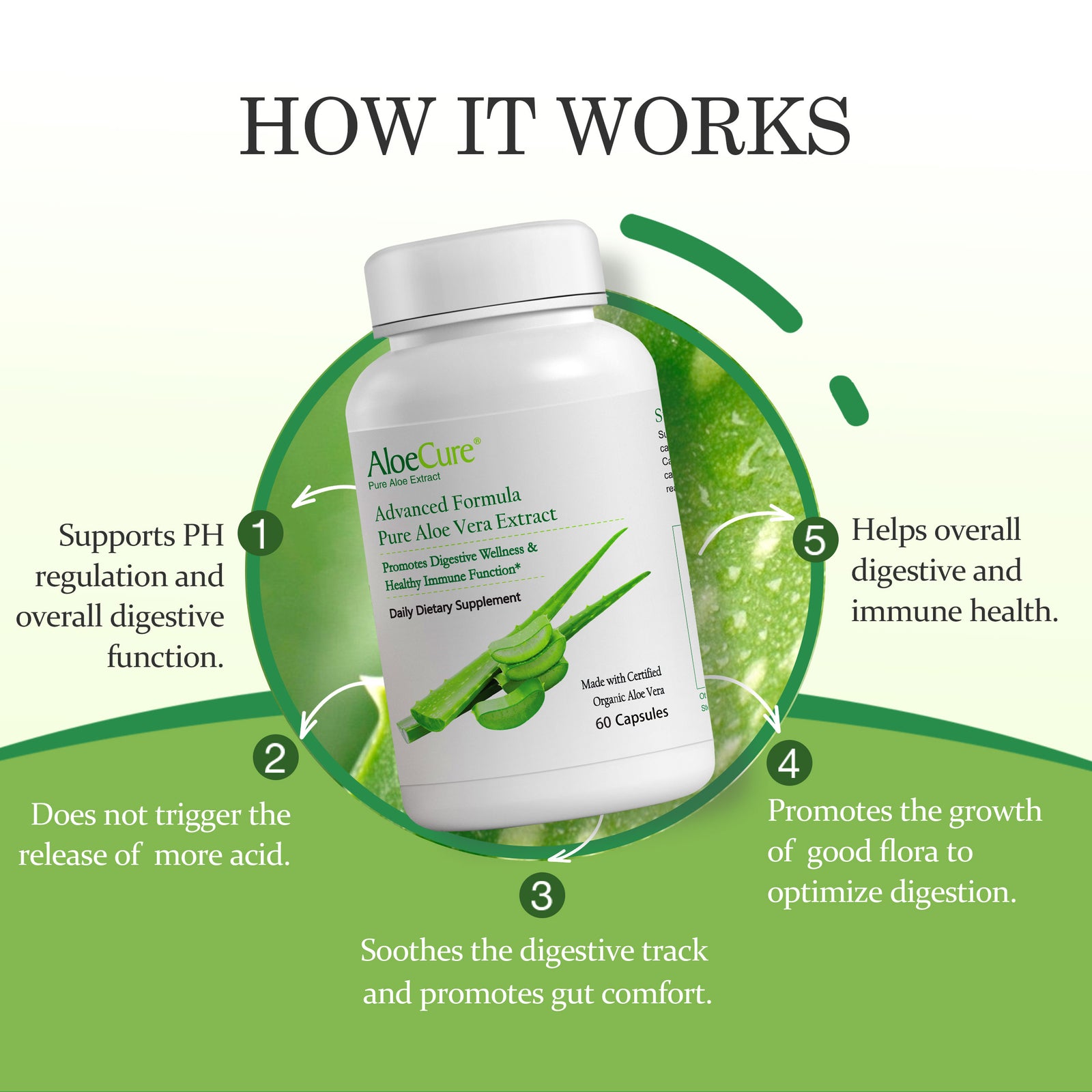Your Cart is Empty
Subscribe & Save 20% on All Products!
Subscribe & Save 20% on All Products!
Subscribe & Save 20% on All Products!
14 min read
Taking a natural approach to digestive comfort usually starts with simple tweaks to your diet and lifestyle. For many people, just being more mindful of what and how they eat is enough to support the body’s natural processes and help maintain upper GI health.
Think of your digestive system like a high-performance engine. Give it the right fuel and keep it maintained, and it purrs along smoothly. But just like that engine will sputter and knock if you fill it with the wrong kind of gas, your digestive system can feel out of whack when its natural rhythm gets thrown off.
This kind of disruption is pretty common. It can be triggered by things like eating rich, fatty foods, sitting down to a massive meal, or even just eating too fast. When that happens, you might feel that familiar occasional discomfort in your upper GI tract. It's really just your body’s way of saying, "Hey, something's not quite right in here!"
Because of this, a lot of people are looking for more natural, gentle ways to support their body's day-to-day digestive functions. There’s a definite move toward methods that work with the body, not against it. This trend is all about a growing awareness of how simple, holistic choices can make a big difference in our overall well-being. Market trends show a clear consumer preference for natural options over traditional chemical-based products, largely due to concerns about long-term use. People often prefer natural approaches, like diet changes and botanicals, because they feel gentler and more supportive.
Your digestive system thrives on consistency and balance. By understanding what supports its natural function, you can make proactive choices that promote daily comfort and wellness, helping your internal "engine" run at its best.
Keeping this internal balance is the cornerstone of digestive comfort. It isn't about a complete life overhaul—it's about making small, consistent adjustments that add up. For example, when you eat can be just as important as what you eat. Eating a huge dinner and then immediately lying down on the couch can really challenge your system's ability to do its job.
The connection between your gut and your brain is also incredibly powerful. Everyday stress alone can throw your digestion for a loop, which just goes to show how important a well-rounded approach to wellness really is. For a deeper look at this relationship, our guide on the gut-brain axis explained is a great resource.
Mindful Eating: Simply taking the time to chew your food thoroughly kicks off the first stage of digestion and can keep your system from feeling overwhelmed.
Portion Awareness: Smaller, more frequent meals are often much gentler on your digestive tract than three huge ones, helping to maintain a more stable internal environment.
Quality Ingredients: Foods that are less processed and naturally low in acid are your allies in maintaining your body’s natural harmony. To learn more about how certain foods can help, you can explore the benefits of olive oil for digestion.
Ultimately, our goal is to give you a solid foundation for understanding your own digestive wellness. Once you learn what contributes to upper GI comfort, you can build a personalized routine that truly supports your body’s needs. This proactive mindset is the perfect starting point for exploring how specific dietary choices, lifestyle habits, and natural supplements can work together to help you achieve lasting digestive harmony.
The old saying "you are what you eat" is especially true when it comes to digestive comfort. Think of the food you choose as the fuel for your body's engine. Picking the right kind can make a world of difference in how smoothly everything runs, and it's a powerful first step in supporting your upper GI health.
Focusing on certain food groups can be a game-changer. Alkaline-rich foods, for example, are naturally gentle on your system. Simple additions like ripe bananas or melons are low in acid and easy to work into breakfast or snacks.
High-fiber options are another ally. A bowl of oatmeal in the morning isn't just comforting; it can actually absorb excess stomach fluids, helping to set a calm tone for the rest of your day. Similarly, reaching for lean proteins like chicken, turkey, and fish is a smart move, as they're far less likely to cause digestive challenges than their fatty or fried counterparts.
The goal here isn't about deprivation or strict rules. It's about making conscious, supportive swaps that help your body's digestive processes work in harmony. You're simply choosing foods that cooperate with your system, not work against it.
Go Green: Vegetables like broccoli, asparagus, and leafy greens are your friends. They are naturally low in fat and sugar, which helps keep your digestive environment calm.
Choose Lean Protein: Opt for baked or grilled chicken, fish, or turkey. This simple switch from heavier, fried options helps keep your system running without a hitch.
Incorporate Healthy Fats: A little bit of healthy fat from sources like avocados and olive oil is beneficial. The key is small amounts, so you don't overburden your digestion.
For even more ideas on what to add to your grocery list, check out our guide on 5 foods that help support your digestion.
A great rule of thumb is to aim for a plate filled with whole, unprocessed foods. The closer a food is to its natural state, the more likely it is to support your digestive harmony.
This infographic really drives home how some common habits and food choices can throw our digestive system off balance.

As you can see, it's not just what you're eating. How you eat plays a massive role in your overall digestive wellness.
To help you visualize this, here's a simple breakdown of foods that tend to help versus those that might hinder digestive comfort.
| Food Category | Foods that Support Digestive Comfort | Foods that May Challenge Digestive Comfort |
|---|---|---|
| Fruits | Bananas, melons, apples, pears | Citrus fruits (oranges, lemons), tomatoes |
| Vegetables | Green beans, broccoli, asparagus, cauliflower, leafy greens, cucumbers | Onions, garlic, spicy peppers |
| Grains | Oatmeal, brown rice, whole-grain bread | Highly processed white bread, sugary cereals |
| Proteins | Lean chicken, turkey, fish, tofu | Fatty cuts of red meat, fried foods, processed meats |
| Dairy | Low-fat yogurt, kefir, skim milk | High-fat cheese, whole milk, cream |
| Beverages | Water, herbal teas (non-mint), plant-based milks | Coffee, alcohol, carbonated drinks, citrus juices |
This table is just a starting point, of course. Everyone's body is different, so it's always a good idea to pay attention to how specific foods make you feel.
Beyond the food itself, simple tweaks to your eating habits can have a surprisingly big impact. Practicing a bit of mindfulness at mealtimes gives your digestive system the calm environment it needs to function at its best.
One of the easiest yet most effective things you can do is chew your food thoroughly. Seriously. This simple step kick-starts digestion before the food even hits your stomach, making the whole process much easier on your body. Another great strategy is to eat smaller, more frequent meals instead of two or three huge ones. This puts far less pressure on your system.
A healthy gut is the foundation of good digestion. Including foods rich in beneficial microorganisms can help support that healthy internal ecosystem. Things like yogurt, kefir, and sauerkraut are packed with good bacteria that contribute to a balanced gut.
For a deeper dive into this topic, you can learn more about how natural probiotics for optimal health can be a fantastic addition to your routine. By pairing a supportive diet with mindful habits, you're building a powerful, proactive toolkit for maintaining digestive comfort for the long haul.
When it comes to your gut, what you eat is only half the story. Your daily habits and routines have a massive impact on your digestive well-being. Think of your body as one big connected system—making small, consistent tweaks to your lifestyle can create an environment where your digestion can really thrive.
These aren't about making drastic, overnight changes. Instead, it's about layering in small, mindful adjustments that support your body's natural rhythm. By looking at how you live, you build a solid foundation for digestive health that works hand-in-hand with your food choices.
One of the most powerful things you can do for your digestive comfort is to maintain a weight that’s healthy for you. Extra weight, especially around your midsection, puts direct physical pressure on your abdomen. This pressure can challenge the normal function of the muscular valve at the top of your stomach, which is crucial for keeping stomach contents where they belong.
By supporting a healthy weight through a balanced diet and regular movement, you literally take the pressure off. It’s a simple concept, but it can make a world of difference for the normal, comfortable function of your entire digestive system.
Believe it or not, your favorite pair of tight jeans could be contributing to your discomfort. Any clothing that cinches your waist—like tight pants, restrictive shapewear, or a snug belt—squeezes your abdomen. This external pressure can push stomach contents upward, especially after you’ve just eaten.
Switching to looser, more comfortable clothing allows your digestive system the space it needs to do its job without fighting against restriction. It’s an easy fix that can promote a surprising amount of comfort.
Your posture, particularly right after a meal, is a game-changer. When you slouch on the couch or lie down right after eating, you’re essentially working against gravity, making it easier for stomach contents to travel where they shouldn’t.
Gravity is your digestive system's best friend. Staying upright for a couple of hours after you eat helps everything move in the right direction. Try a short, leisurely walk or simply relax in a chair before you recline for the night.
This small habit lets your body's natural processes unfold smoothly and comfortably, without the added challenge of a horizontal position.
The link between your brain and your gut is incredibly powerful. When you're feeling occasional stress, your body can go into "fight or flight" mode, which can affect digestion. Stress can influence stomach acid production and throw off the whole rhythm of your GI tract.
Learning to manage that stress can have a profound effect on your gut health.
Deep Breathing: Just a few minutes of slow, deep belly breaths can promote relaxation in your nervous system, which in turn supports your digestive system.
Mindfulness and Meditation: Making this a regular practice helps support a healthy stress response, creating a more peaceful internal state overall.
Gentle Movement: Activities like yoga or a simple walk are fantastic for supporting a healthy response to stress while also encouraging healthy digestion.
By supporting a healthy stress response, you help create a calm, balanced environment where your digestive system can relax and function properly.
If you find yourself dealing with discomfort at night, a simple tweak to your sleeping setup can offer major support. Lying completely flat makes it physically easier for stomach contents to flow back into the esophagus.
The solution? Prop the head of your bed up by six to eight inches. This uses gravity to your advantage, helping keep everything settled in your stomach. You can do this easily with special bed risers that go under the legs of your bed frame, or you can use a wedge pillow designed for this purpose. It’s a minor adjustment that can lead to a much more comfortable and restful night's sleep.

For centuries, long before modern medicine, people around the world have relied on plants to keep their bodies running smoothly. When it comes to supporting digestive comfort, a few specific herbs have stood the test of time, earning a reputation for being gentle but effective.
This isn't just ancient wisdom; it's a booming global trend. More and more people are seeking out natural options, particularly in places like India where traditional Ayurvedic practices have always been a part of life. In fact, the global market for digestive remedies is projected to hit an incredible USD 32.27 billion by 2034, showing a massive shift towards these plant-based approaches. You can dig deeper into this trend over at Polaris Market Research.
Just about everyone knows ginger. It's a powerhouse in the kitchen, but it’s also famous for its ability to support an unsettled stomach. For generations, it's been the go-to for occasional nausea and that general "off" feeling after a meal. The benefits come from compounds called gingerols, which are believed to be behind most of its digestive properties.
This amazing root helps encourage healthy motility, which is just a fancy way of saying it keeps food moving through your digestive system at the right pace. A warm cup of ginger tea after you eat is a simple, comforting ritual that can make a real difference.
Chamomile is practically synonymous with calm and relaxation. It turns out that what’s good for your mind is also good for your gut. Its gentle properties are perfect for anyone looking to maintain digestive peace.
The delicate flower works by helping the smooth muscles in your digestive tract relax. This can be especially helpful after a big meal or when you're feeling occasional stress—two common culprits that can throw your digestion out of whack. A simple tea made from dried chamomile flowers is a wonderfully soothing way to support your body's natural rhythm.
Integrating herbal teas into your daily routine is a simple, proactive step toward maintaining digestive harmony. A warm cup can be a comforting ritual that signals to your body it's time to relax and digest.
Licorice root has a long history of being used to support the lining of the digestive tract. Think of it as reinforcing your gut’s first line of defense.
One crucial detail: you’ll want to look for a specific form called deglycyrrhizinated licorice (DGL). This version has had a compound called glycyrrhizin removed, which can cause side effects if used long-term. DGL is usually sold as chewable tablets that you can take before meals to help promote comfort.
Making your own herbal tea is incredibly easy and rewarding. Here’s a quick guide to get you started:
Gather Your Herb: Start with about one teaspoon of a dried herb (like chamomile flowers or some freshly grated ginger) for every cup of water.
Heat the Water: Bring fresh water to a boil, then let it sit for just a minute to cool slightly. Pouring boiling water directly on delicate herbs can sometimes scorch them.
Steep for Comfort: Pour the hot water over your herbs in a mug. Cover it with a small plate and let it steep for 5-10 minutes. The longer you steep, the stronger the flavor.
Strain and Enjoy: Use a small strainer to pour the tea into another cup, and enjoy the warm, soothing goodness.
Among the countless botanicals people turn to for digestive wellness, Aloe vera has truly earned its special place. Its unique properties make it a standout choice for anyone looking to support their upper GI health and find more digestive comfort day to day.
The gel from the aloe leaf is famous for its gentle, soothing qualities. Unlike other herbs that might target just one part of the digestive process, aloe offers much broader support. It's particularly great at helping to maintain the integrity of your digestive tract lining—think of it as a natural reinforcement for your body's protective layers, keeping things running smoothly.
This is where the AloeCure story really begins, because not all aloe is created equal. The quality of an aloe vera product hinges entirely on how it’s grown, harvested, and processed. Many companies just buy their aloe from third-party suppliers, which can lead to huge inconsistencies and a loss of the plant's vital nutrients.
We just do things differently. We are fully vertically integrated, which is a fancy way of saying we own and operate our own USDA-certified organic aloe farms. We control every single step, from planting the tiny aloe pups to sealing the final bottle. This "field-to-bottle" commitment is our promise of quality you can trust.
Our entire process is designed to preserve the natural power of the plant.
Hand-Harvesting: We carefully select and hand-harvest mature, organic aloe leaves right at their peak.
Rapid Processing: To lock in all the good stuff, the leaves are processed on-site within 12 hours of harvest.
Proprietary Method: We use a patented, completely natural process that skips the harsh chemicals, charcoal filtration, and enzymes that many of our competitors rely on.
This meticulous approach ensures our aloe vera keeps its maximum bioactivity, giving you a pure and potent product that you can actually feel. To learn more about how our premium aloe can fit into your daily routine, you can explore the aloe vera digestion benefits in our detailed guide.
So, how does this high-quality aloe vera actually support your digestive wellness? Its main job is to support the body's own protective mechanisms within the upper GI tract. The natural compounds found in pure aloe gel work in harmony with your system to promote a balanced internal environment.
This isn't about forcing an action on your body. It's about providing the nutritional building blocks it needs to maintain its own health. It helps assist your body in its normal physiological processes, encouraging a state of comfort and equilibrium from the inside out.
The goal of using aloe vera is to work with your body, not against it. By supporting the natural integrity of the digestive lining, you help your system maintain its intended function and promote lasting comfort.
We know that everyone's wellness journey is unique. That's why we offer a few different ways to enjoy the benefits of our organic aloe, whether you prefer a refreshing drink or the simple convenience of a capsule.
Pure Aloe Vera Juice: Our USDA Organic juices come in Natural, Grape, and Lemon flavors. They're a perfect way to start your day and give direct support to your GI tract.
Advanced Formula Aloe Capsules: For those who are always on the go, our capsules offer a concentrated and easy way to get your daily aloe and support digestive comfort anytime, anywhere.
When you choose AloeCure, you’re not just buying a supplement; you're investing in a product crafted with complete care and transparency, literally from the ground up. Ready to experience what field-to-bottle quality feels like? Explore our premium aloe vera supplements and find the right fit for your wellness goals. For extra savings, sign up for a subscription and get 20% off every order.
Taking your wellness into your own hands with lifestyle tweaks and natural options is a fantastic first step. It's empowering. But it's just as important to know when those efforts aren't quite cutting it and it’s time to call in a professional.
If you find that your digestive troubles are persistent, showing up several times a week, or if the discomfort feels more intense than usual, it’s probably a good idea to chat with a healthcare professional. They can take a closer look and make sure you’re on the right track for your specific situation
When you start exploring natural ways to support your digestion, a few questions always seem to pop up. Getting a handle on what to expect and how to mix and match different approaches will help you build a routine that truly works for you. Let's tackle some of the most common ones.
This is probably the most-asked question, and the answer really comes down to one word: consistency. Some people feel better within just a few days of making simple swaps—like skipping those late-night spicy snacks or propping their head up with an extra pillow. For others, it might take a couple of weeks to really notice a shift. The key is to be patient with your body.
Think of it like building a new, healthy foundation brick by brick. Every good choice, whether it's eating smaller meals or finding a way to de-stress after work, adds another layer of support for your digestive system. It's the cumulative effect of these small, steady habits that leads to real, lasting comfort.
Yes, it’s always smart to be mindful when adding anything new to your routine. Even though natural options are typically gentle, the quality and source of what you’re using make a huge difference. For herbal supplements or products like aloe vera juice, it’s absolutely crucial to pick a reputable brand that’s open about how they make their products.
Always go for products from trusted companies that manage their own process from the field to the final bottle. This is the only way to be sure you're getting a pure, high-quality product without any weird additives that could work against your digestive health goals.
Absolutely! In fact, approaching wellness from multiple angles is often the most effective path to feeling your best. When you combine mindful eating, better lifestyle habits, and targeted natural supplements, you can create a powerful, synergistic effect.
For example, you could start eating more alkaline foods while also enjoying a daily cup of ginger tea and taking a high-quality aloe vera supplement. Each piece of the puzzle supports your system in a slightly different way, and together, they work to promote a balanced, comfortable digestive tract. It's this kind of well-rounded approach that empowers you to build a truly comprehensive plan for keeping your digestion happy.
At AloeCure, we’re dedicated to bringing you the purest, field-to-bottle aloe vera to support your digestive health. Our vertically integrated process means you get a product with unmatched quality. Discover the AloeCure difference and start your journey to digestive comfort today.
Article created using Outrank
Comments will be approved before showing up.
15 min read
15 min read
15 min read
Instantly get a coupon and enroll for newest wellness trends













